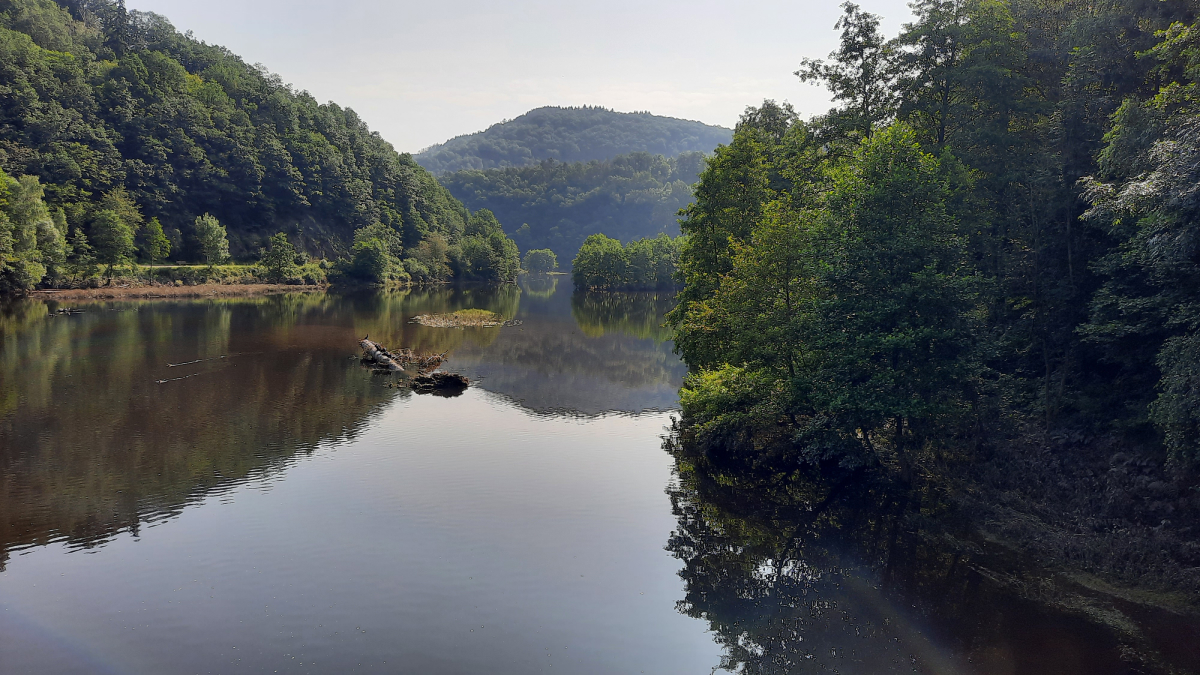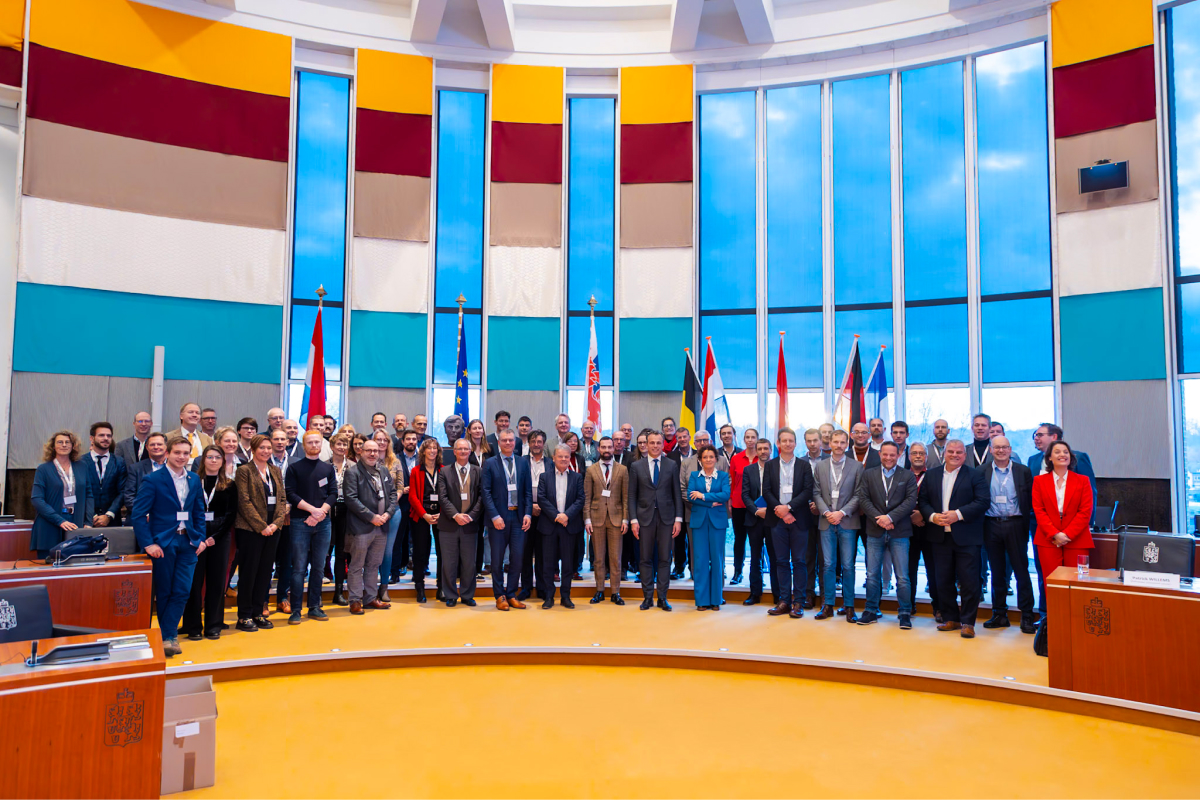
Benelux Water Day. November 29th 2023. Maastricht.
Benelux Water Day launch
The Dutch Presidency of Benelux organised a high-level conference gathering regional stakeholders, policymakers, and researchers. The reason that brought them together? The shared challenges posed by climate extreme events. The devastating floods in 2021 left a mark on the entire region, reminding us that water knows no boundaries. Sharing borders and water basins comes with the shared responsibility of addressing these challenges, requiring regional response and preparedness. Fully reflecting this, the event marked an important step towards strengthening regional cooperation and dialogue. It was also the perfect occasion for the much-anticipated launch of our research programme.
Transboundary challenges require transboundary solutions
At their core, both the Benelux Water Day and our programme are about cooperation. Cooperation that transcends geographic, language, cultural and sectoral boundaries. Much like natural disasters themselves. At JCAR ATRACE, we strive to improve transboundary cooperation in flood and drought management and research. How? By bringing together 9 of the top research institutes with this specific expertise from across Belgium, Germany, Luxembourg, and the Netherlands.
Our ambition is for JCAR ATRACE to be an investment in long-term cooperation with which we build a sustainable (knowledge) community for the future. So that our researchers can work in a border-crossing knowledge and expertise network and be ready for the future
Annemieke Nijhof, Managing Director of Deltares, the Dutch independent knowledge institute on innovative solutions in the field of water and subsurface and JCAR ATRACE coordinator
To this end, the Benelux Water Day event was an embodiment of our programme’s goals: stimulating the exchange of knowledge and practices between researchers, policymakers, and other regional actors. Stakeholders and academics from the programme countries and beyond gathered to share their expertise. They were able to hear from speakers including the Dutch Minister for Water Management Mark Harbers, the Flemish Minister for Transport Lydia Peeters, the Secretary-General for the Benelux Frans Weekers, and representatives from the German state of North Rhine-Westphalia.
The event took stock of the impact of climate extreme events in the region. The floods that occurred in the Benelux region and Germany in 2021 were a sobering reminder that climate extreme events can lead to unimaginable consequences. The floods caused widespread damage to homes, businesses, and infrastructure, and claimed many lives.
The Benelux region is particularly vulnerable to the impacts of climate change due to its low-lying geography. It has experienced an increase in extreme weather events such as floods, heatwaves, and droughts in recent years, which have had devastating consequences for its people and economy. Neighbouring countries such as Germany and France have also been increasingly impacted by climate extremities. This signals the need for a coordinated approach to address the challenges posed by climate extreme events.
Annemieke Nijhof, who was among the renowned speakers at the event, shared that the disastrous floods of 2021 drove Deltares to further developing a policy-relevant and applicable knowledge base together with researchers from top-institutes in the Benelux countries and Germany: “This will require better sharing of our knowledge, skills, insights, experiences and scientific practices and principles together. This specifically involves regional rivers and river basins. The users of our knowledge are therefore mainly regional governments and regional stakeholders.”
The focus is on better understanding the impact on cross-border water systems and seeking innovative solutions and measures together. This can make our societies more resilient to impacts of extreme floods and droughts.
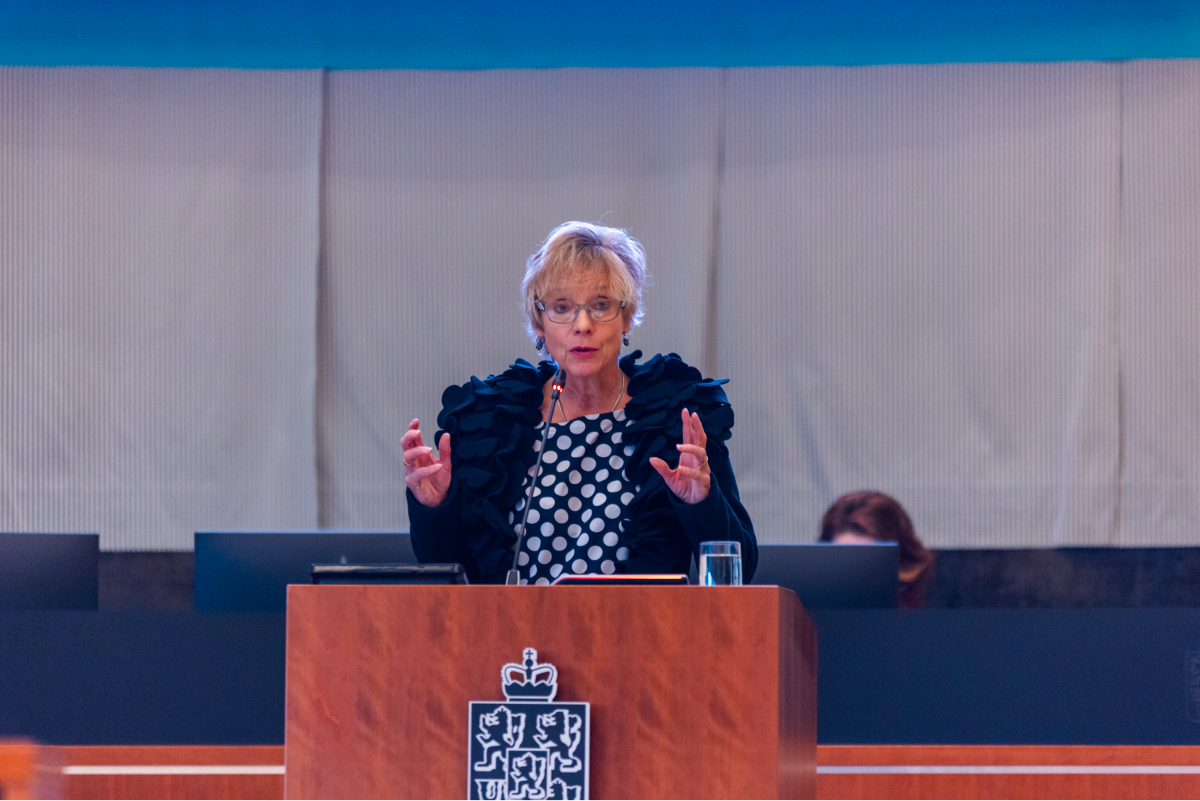
Managing Director of Deltares
Annemieke Nijhof
Annemieke Nijhof has been serving as Managing Director of Deltares since 1 October 2020. Ms Nijhof has been working on different aspects of the sustainable living environment for almost 30 years. She has working experience in both business and government, having held posts in the Ministry of Education, Culture and Science, Ministry of Public Health, Spatial Planning and Environment, Ministry of General Affairs, and Ministry of Infrastructure and Water Management. Furthermore, she is supervisor and advisor to knowledge institutes, the government, NGOs and the financial sector. She was top woman of the year 2015 because of her tenacious dedication to diversity and inclusivity in organisations.
Navigating climate extreme events together
Contributing to this, the Benelux Water Day launch paved the way for fostering greater cooperation and collaboration in the region. It explored the potential opportunities for improving the management and conservation of water resources. This can have a significant impact on the sustainable development of the region.
Throughout the day, academics and high-level officials exchanged ideas during a series of workshops. Together, we engaged in brainstorming and deliberation on critical research questions. Building on this, the researchers from our programme are continuously collaborating with competent river basin authorities and other stakeholders to expand the list of research and study topics. Examples include:
Insight in flood preparedness: precipitation and flood forecasting, actionable warning and crisis response: how do regions compare and is an uniform approach desirable and feasible?
Quantifying effects of sponge landscapes on both flood and drought risks in regional river basins
Flood vulnerability of households and the potential effect of preventive household measures
This guides our knowledge agenda, which currently encompasses several themes: extreme hazards, exposure, vulnerability, compound risk and adaptation measures. Throughout our work, we will focus on knowledge development in those themes to develop a comprehensive portfolio of strategies to mitigate the impact of climate change induced weather extremes in transboundary small and medium sized river basins.
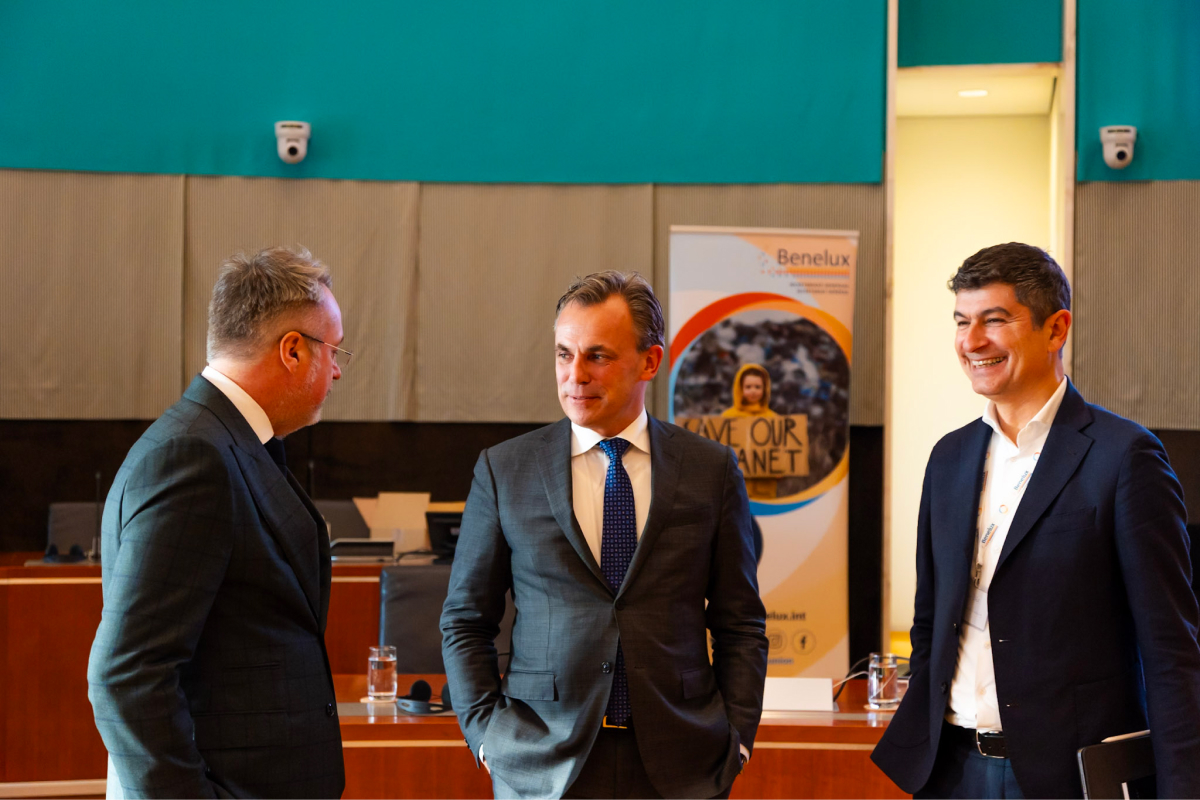
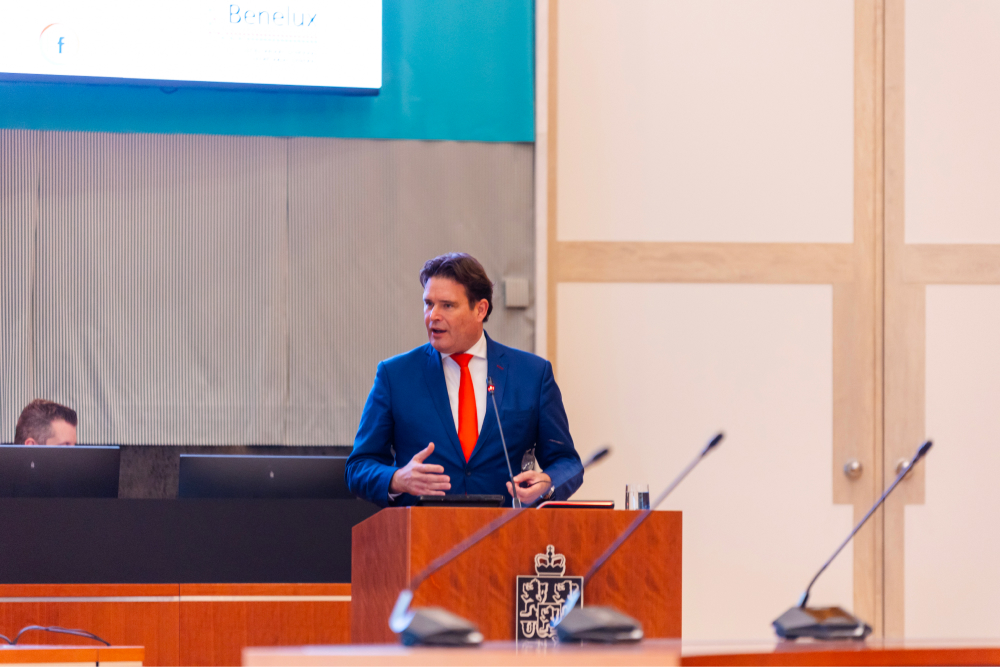


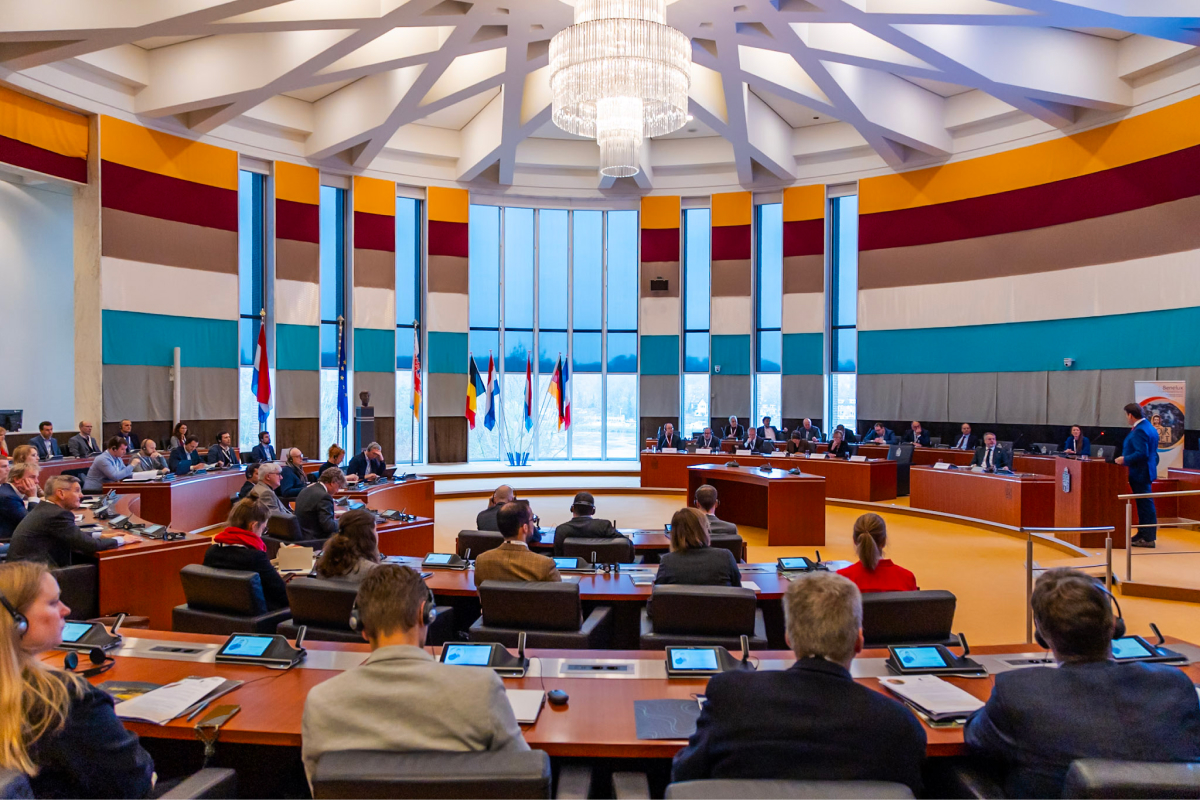
Annemieke Nijhof further unpacked the two main tracks of our programme. The first aims to produce results to address pressing policy questions in an international setting. When it comes to timely preparation of flood and drought management, research must adapt to the urgency and speed at which action is required.
The second track, known as 'deep-dive research', enables the expansion of the knowledge base through multi-year scientific research conducted together. Rather than creating new instruments and measures, our aim is to test, improve, extend, and integrate existing frameworks, concepts, models, and datasets to tailor the current available knowledge into adaptation measures and policy.
We are faced with the reality that extreme weather conditions are changing more rapidly than anticipated. Theirs effects are being felt by more and more regions. Despite the abundance of data on climate change and its impact, climate adaptation is progressing slowly. To address this, we aim to share and strengthen the common knowledge base on extreme floods and droughts for regional waters. This would allow regional authorities to better prepare for extreme weather in the Benelux region and neighbouring countries.
The launch of our programme in November marked the beginning of this collaborative journey. The high engagement and commitment during the Benelux Water Day were a testament of the importance of strengthening regional collaboration and knowledge sharing. Together, we can navigate through extreme floods and droughts.

